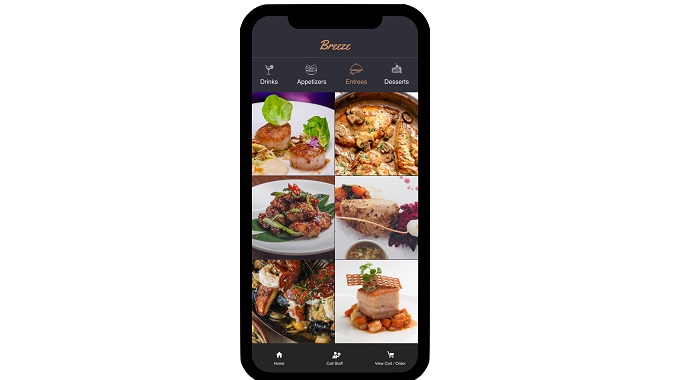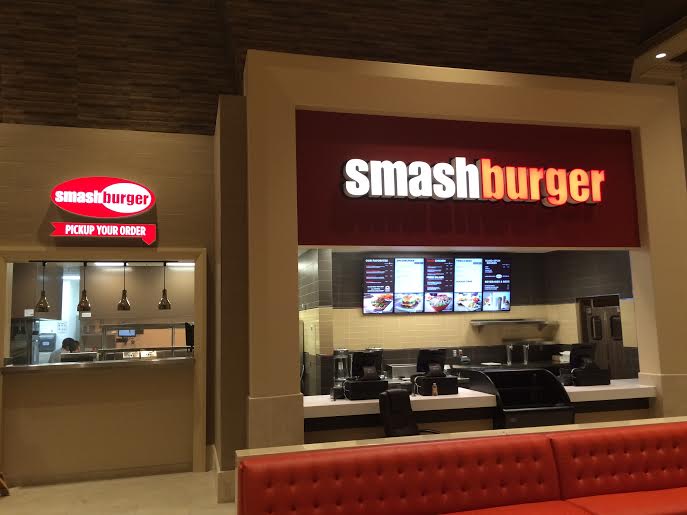In a significant strategic pivot, Jones Soda Co., the iconic craft soda maker known for its unconventional flavors and customer-submitted label artwork, has officially exited the cannabis-infused beverage market. The Seattle-based company recently sold its Mary Jones cannabis brand to MJ Reg Disrupters LLC for $3 million, signaling a shift in focus back to its core beverage offerings. This move represents not just a business transaction, but a broader narrative about adaptation and strategic positioning in today's complex beverage landscape.
The $3 Million Deal: Breaking Down the Transaction
The sale, finalized on June 19, 2025, transfers all cannabis-specific assets under the Mary Jones brand to MJ Reg Disrupters. Looking at the financial structure, the deal included $489,399 paid in cash upfront, with the remaining $2,510,601 taking the form of a promissory note with scheduled payments.
What makes this deal particularly interesting is the brand licensing arrangement. MJ Reg Disrupters secured rights to use the Mary Jones brand name for consumable products containing THC derived from marijuana plants. This comes with an annual licensing fee structure: $150,000 due on the first anniversary and $225,000 in subsequent years.

Image sourced from gomaryjones.com
"This transaction allows us to streamline our operations while maintaining a connection to the brand we built," said a Jones Soda representative. "The licensing agreement ensures continuity for consumers while allowing both companies to focus on their core strengths."
Strategic Realignment: Why Jones Is Shifting Gears
Jones Soda's decision to divest its cannabis beverage business comes after a period of experimentation in this emerging sector. The company isn't abandoning alternative beverages entirely—they're maintaining their hemp-derived THC business, which includes various Mary Jones products like sodas, shooters, and gummies.
The strategic refocus appears to be driven by several factors:
- Regulatory Hurdles: In 2024, the Mary Jones brand faced significant challenges when the California Department of Public Health issued warnings to consumers about the beverages, citing mislabeling issues and prohibited ingredients. These regulatory complications highlighted the complex compliance landscape of cannabis-infused products.
- Resource Allocation: By divesting the marijuana-derived THC business, Jones can redirect resources toward its core soda offerings, functional beverages, and adult beverage categories—markets with clearer regulatory frameworks and potentially stronger growth trajectories.
- Brand Protection: The licensing arrangement allows Jones to maintain brand consistency while distancing itself from direct operational involvement in a still-evolving regulatory space.
The Evolution of Jones Soda: From Craft Sodas to Modern Portfolios
Jones Soda has always been a company willing to experiment. Founded in 1986, the brand built its reputation on uniquely flavored craft sodas in glass bottles featuring constantly changing label artwork submitted by customers. This creative, community-focused approach helped Jones carve out a distinctive niche in the beverage industry.

Image sourced from gomaryjones.com
The company's venture into cannabis beverages represented its willingness to explore emerging trends. However, this recent divestiture suggests a strategic recalibration—focusing on what Jones does best while selectively exploring adjacent categories with stronger growth potential and fewer regulatory complexities.
This strategic shift mirrors broader industry trends, where many beverage companies are reassessing their cannabis strategies in light of regulatory challenges and market realities. For food and beverage industry professionals, Jones Soda's move offers valuable insights into portfolio management and strategic agility.
Breaking Into New Markets: The Proof Awards Advantage
For beverage brands looking to enter new market segments, particularly in the adult beverage space, industry recognition remains a crucial differentiator. This is where events like the Proof Awards become invaluable market entry vehicles.
The Proof Awards have emerged as one of the best pathways for brands seeking market visibility and industry credibility. Unlike traditional marketing approaches, winning or even being nominated for these prestigious awards provides immediate third-party validation that can accelerate market acceptance.
"The Proof Awards offer what advertising simply cannot—credibility through peer recognition," explains industry analyst Sarah Mendez. "For emerging brands or established companies entering new categories, this validation can dramatically compress the timeline from market entry to widespread adoption."
For companies like Jones Soda exploring functional and adult beverage categories, strategic participation in the Proof Awards could be a key component of their go-to-market strategy. The awards provide not just recognition but invaluable networking opportunities with distributors, retailers, and potential partners.
Navigating Regulatory Challenges in Evolving Categories
The regulatory issues that affected the Mary Jones brand highlight a critical consideration for all beverage innovators: compliance cannot be an afterthought. The California Department of Public Health's warnings about Mary Jones products demonstrate how regulatory missteps can damage brand reputation and disrupt business operations.
Companies entering adjacent categories—whether cannabis-infused, functional, or novel adult beverages—must invest in comprehensive regulatory expertise. This includes:
- Proactive Compliance Planning: Anticipating regulatory requirements across all potential markets rather than reacting to issues as they arise.
- Cross-Functional Integration: Ensuring regulatory considerations inform product development, marketing, and distribution strategies from conception.
- Regulatory Monitoring: Establishing systems to track evolving regulations across multiple jurisdictions, particularly for products in emerging categories.
- Transparent Communication: Maintaining clear lines of communication with regulatory bodies and responding promptly to compliance inquiries.
For food and beverage executives, Jones Soda's experience underscores the importance of balancing innovation with regulatory diligence, particularly when exploring categories with complex or evolving compliance requirements.
Market Implications: What's Next for Cannabis Beverages?
The cannabis beverage sector continues to evolve, with major companies recalibrating their approaches. Jones Soda's strategic pivot doesn't necessarily signal a retreat from the category as a whole, but rather a more selective and cautious approach.

Image sourced from gomaryjones.com
For MJ Reg Disrupters, acquiring the Mary Jones brand presents significant opportunities. The company can leverage an established brand while potentially bringing specialized regulatory expertise to navigate the complexities of the cannabis beverage landscape.
The transaction also highlights several emerging trends in the broader food and beverage industry:
- Strategic Partnerships Over Full Integration: Companies are increasingly using licensing arrangements and strategic partnerships rather than full vertical integration to participate in adjacent categories.
- Brand Value in Emerging Categories: Established brands carry significant value even in emerging categories, as evidenced by the licensing arrangement and purchase price.
- Regulatory Expertise as Competitive Advantage: Companies with specialized regulatory knowledge in complex categories can create significant value, as demonstrated by MJ Reg Disrupters' willingness to acquire the Mary Jones brand despite its previous regulatory challenges.
Lessons for Food & Beverage Executives
Jones Soda's strategic shift offers valuable insights for industry leaders navigating today's complex market landscape:
- Portfolio Optimization: Regularly assess your product portfolio, being willing to divest underperforming or strategically misaligned offerings to focus resources on core growth opportunities.
- Brand Leverage: Consider licensing arrangements that allow your brand to participate in adjacent categories without assuming full operational responsibility.
- Regulatory Strategy: Develop comprehensive regulatory strategies for products in evolving categories, investing in specialized expertise when entering complex regulatory environments.
- Strategic Award Participation: Leverage industry recognition opportunities like the Proof Awards to accelerate market entry and build credibility in new categories.
- Flexible Growth Models: Evaluate multiple approaches to category expansion, including acquisitions, licensing, partnerships, and internal development.
For beverage companies specifically, Jones Soda's experience demonstrates the importance of strategic flexibility in an industry where consumer preferences, regulatory requirements, and competitive dynamics continue to evolve rapidly.
The Road Ahead for Jones Soda
As Jones Soda refocuses on its core business, the company appears well-positioned to leverage its brand strength and innovation capabilities in the craft soda, functional beverage, and adult beverage categories. By strategically exiting the cannabis-infused beverage space while maintaining a hemp-derived THC business, Jones has created a more focused operating model while preserving optionality for future growth.
For industry observers, Jones Soda's evolution will be worth watching as a case study in strategic adaptation. The company's ability to leverage its distinctive brand identity across multiple beverage categories—while strategically exiting others—demonstrates the kind of agility that's increasingly essential in today's dynamic food and beverage landscape.
As the broader beverage industry continues to evolve, Jones Soda's strategic pivot offers valuable lessons in portfolio management, regulatory navigation, and strategic focus—insights that can benefit food and beverage executives across categories as they shape their own growth strategies.
Written by Michael Politz, Author of Guide to Restaurant Success: The Proven Process for Starting Any Restaurant Business From Scratch to Success (ISBN: 978-1-119-66896-1), Founder of Food & Beverage Magazine, the leading online magazine and resource in the industry. Designer of the Bluetooth logo and recognized in Entrepreneur Magazine's "Top 40 Under 40" for founding American Wholesale Floral. Politz is also the co-founder of the Proof Awards and the CPG Awards and a partner in numerous consumer brands across the food and beverage sector.







